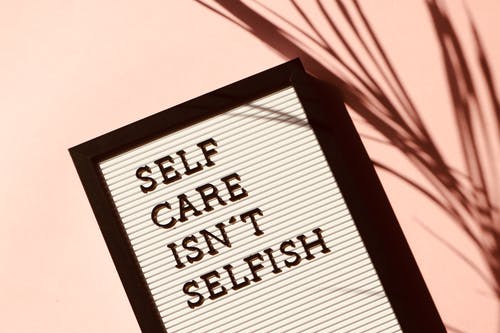
Recent turbulent times of pandemics have once again brought mental health into focus. Changing environment at home and work has created now a set of stressful conditions difficult to deal with. The majority of people adjust to their environment but some do have difficulty in managing such issues making them prone to anxiety.
How to determine that you are mentally healthy?
Mental health, defined by the World Health Organization (WHO), is “a state of well-being in which the individual realizes his or her abilities, can cope with the normal stresses of life, can work productively and fruitfully, and can contribute to his or her community”.
Factors affecting mental health:
- Biological factors – gender, genes, brain chemistry, family history
- Life experiences-trauma, abuse, education
Depression -how to recognize?
Symptoms range from sadness, irritability, loss of pleasure, anhedonia, concentration difficulties, negative thoughts, self-evaluation, guilt, fatigue, change in appetite to recurrent thoughts of death/suicide.

Are women more prone to depression – women are two times more likely than men to be diagnosed with depression. The prevalence of major depression is 5.5% in women vs. 3.2% in men, approximately 1.7 times higher.
So do hormones play a role in mental health?
Female hormones like estrogen and progesterone are shown to affect neurotransmitters, neuroendocrine and circadian systems implicated in mood disorders. Before puberty incidence of depression in girls and boys is similar. At older ages>65yrs, both men and women show a decline in depression rates. The discrepancies in incidence peak at age of 14 -45years of age.
Women also experience specific forms of depression related illnesses including premenstrual dysphoric disorder (PMS), postpartum depression, post-menopausal depression and anxiety. These changes correlate to changes in their hormones.
Specific stages of life where women experience increased risks are:
- PUBERTY – puberty is associated with experiences that can play a role in depression such as emerging sexuality and identity issues, conflict with parents and increasing pressure to achieve in school, sports and other areas.
- PREGNANCY-Dramatic hormonal and physiological changes during pregnancy affect mood and anxiety related to pregnancy and well being of the baby adds to stress. Stress at home or work environment can trigger or precipitate depression.
- POSTPARTUM DEPRESSION– Shifting of focus to newborn often leads women to fend for themselves, with the demand of lactation and care can make them irritable, sad or angry. The spectrum can range from innocuous crying spells to baby blues which subside in a week or two to long-lasting depression. Postpartum depression is a serious medical condition requiring prompt treatment in 10-15 % of women.
4. PERIMENOPAUSE AND MENOPAUSE – Transition from reproductive age to menopause is called perimenopause. This is a stage where hormones start to wane off. Estrogen levels are significantly reduced which may lead to disturbed sleep and anxiety.

Are only hormones are to be blamed?
Changes in the biochemistry of hormones during different stages have been thought of as playing part in mental health but yet to be proved by studies. Other factors contributing include…
- 1. Social inequality– Though changes in modern times have reduced the gap still the dominance of men, inequality in pay land work causes a feeling of negativity and low self-esteem.
- 2. burning candle at both ends – working women have to deal with dual responsibilities both at home and work. Conflicts between their roles add to anxiety.
- 3. Sexual or physical abuse– women who have been abused at home/work are more likely to experience depression at some point in time.
- Coping style– women are more emotion-focused, ruminative, mulling their problems over in their minds. Men tend to be more problem-focused, in distracting coping style to forget the problem.

Do Androgens protect men?
Men have the peripheral conversion of testosterone to estrogen by enzymes. This ensures a constant level of estrogen in the brain which in turn protect men.
But some researchers suggest that women seek help more often, earlier and are more likely to report their symptoms. This leads to an increase in diagnosis while depression among men may be undiagnosed, as men often label their symptoms to stress than sadness.
What needs to be done?
- PREVENTION–
- Reduction of risk factors like work inequality.
- To promote a positive sense of self-esteem.
- To promote companionship and interaction with other people.
- To create safe work and home environment to prevent abuse.
- Support to children – life skill program, child and youth development.
- Socio-economic empowerment of women-improving access to education.
- Social support for elderly population- community daycare centers.

- 2. EARLY RECOGNITION OF SYMPTOMS OF DEPRESSION such as ongoing feelings of sadness, guilt or hopelessness, loss of interest in things once enjoyed, changes in sleep pattern-trouble falling asleep, staying asleep, sleeping too much.
- SPECIFIC TREATMENT-
- Pharmacotherapy– Treatment may require drugs in severe cases like selective serotonin receptor inhibitors, tri cyclical antidepressants, and atypical antidepressants.
- B. Occupational therapy– It helps in promoting healing through recreation and active engagement.
- C. Psychotherapy– It’s a scientific treatment that includes psychoanalysis, cognitive-behavioural therapy. It helps you understand, Identify issues contributing to depression leading to behavioural changes to adapt/adjust to stress.
A healthy mind goes a long way in promoting health and happiness. Let’s reach out to ask for help / help each other towards our goal of optimum mental and physical health.


Very useful and interesting information 👍
Interesting
Very useful information
Thanx for sharing
The information
Very informative and interesting. Most of us are unaware of above mentioned symptoms and how we are getting affected by it. Thanks for sharing